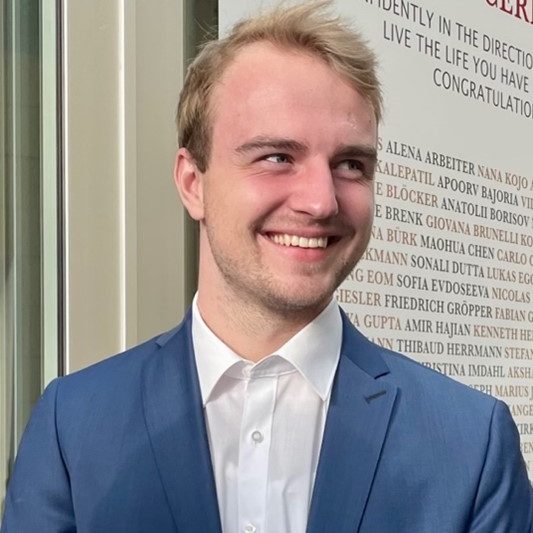Wondering if a master’s in Human Resources and Organisations (Organisational Behaviour stream) at LSE would align with and lay solid theoretical foundations for further studies at the PhD level? If so, read on for insider information from post-graduate Jonah Rösemeier…
Interested in gaining theoretical knowledge and skills for PhD studies, I was unsure whether the MSc HRO (OB) would be right for me.
Despite hours and hours of stressful research and reading blog posts like this before commencing my MSc HRO (OB) at LSE, I did not know whether the programme and LSE would lay strong theoretical foundations for further studies at the PhD level or whether my degree would be rather applied.
https://unsplash.com/photos/bmJAXAz6ads
Let me therefore provide you with my insider information that I lacked before starting my studies.
In brief: MSc Human Resources and Organisations (HRO) (Organisational Behaviour stream (OB)) can provide a fantastic mix of theoretical and practical insights, while LSE’s extracurriculars can additionally pave the way for further studies — but it depends on what you make out of it.
The programme
MSc HRO (OB) has three foundational pillars that can each convey a distinctive mix of theoretical and practical insights and differentially lay foundations for further studies.
1. Compulsory courses
First, whether the programme’s compulsory courses in Michaelmas Term are theoretical or applied heavily depends on the specific course. Here are two personal examples:
The first lecture that I sat in at LSE was Organisational Behaviour (OB). The course was exactly what I hoped for:
- Weekly lectures with heavy theory.
- Various readings on a myriad of different OB-relevant variables—for example, psychological contracts, individual differences, motivation, and proactivity.
- Seminars in which students theoretically and methodologically dissect the learned content using short, applied scenarios.
Foundations of Human Resource Management (HRM), another compulsory course in Michaelmas Term, likewise conveyed strong theoretical foundations in the lectures. Yet, contrary to OB, some readings were from practitioner outlets such as Harvard Business Review. The seminars were also more applied as they broadly focused on useful interventions to HR problems outlined in longer case studies. These discussions did not always revolve around the course contents and were often based on fellow students’ real-life HR experiences.
2. Electives
Second, as the only MSc HRO stream that exclusively has elective courses in Lent Term, the OB stream allows you to actively choose theoretical over applied courses. LSE even allows students to change their electives within the first two weeks of the term, thus you can ensure that your courses match your expectations. You can also select courses from other departments.
Personally, I selected a course on groups and identity from the Department of Psychological and Behavioural Science—a heavily theoretical course that seldom references the organisational context.
3. Dissertation
Finally, you can similarly customise your dissertation. You can either –
- write your dissertation as an applied project with a company that provides you with a topic (a so-called “Links dissertation”),
- or write your dissertation on your own, in which case you must find the topic yourself and collect your own data.
Interested in further studies, I personally found working on my own dissertation and interests to be the more attractive opportunity.
In my case, talking to one of my professors during his office hours led to us collaborating on an exciting research project.
LSE’s extracurriculars
While an intense one-year programme may leave little time for additional activities, LSE offers wonderful extracurricular opportunities to prepare you for further studies. Here are three personal examples:
Workshops
First, LSE offers fantastic workshops. For example:
- LSE’s Digital Skills Lab offers workshops and online resources on Excel, Python, R, and more, which are useful to gain technical skills for data preparation and analysis.
- LSE Careers organises events on further studies in which professors and alumni share PhD- and research-relevant insights and experiences.
- LSE Life provides a range of workshops on academic writing, reading, and referencing.
Personally, I have visited multiple workshops on R and academic writing.
Auditing
Second, you can audit (essentially studying without examinations) almost any course at LSE. The courses can be either audited in person or online by accessing its resources via LSE’s learning management system. Personally, I have audited a course on computer programming in person and a PhD-level course on OB online.
Make time with professors
Lastly—and most importantly—the most valuable resources if you want to pursue further studies are the professors themselves. On a basic level, you can use professors’ office hours to not only discuss course-related contents, but also to talk about a wide range of topics, for example, their research and their career path.
Perhaps more interestingly, professors often look for research assistants and collaborators that aid with theory development, data collection, or data analysis on a paid or voluntary basis. These positions are an extraordinary opportunity to gain deep insights into a specific scholarly topic and the research process itself.
While some professors may actively advertise these positions, you can also approach them proactively if you are interested in their research area. In my case, talking to one of my professors during his office hours led to us collaborating on an exciting research project.
The bottom-line
So, does the MSc HRO (OB) prepare you for PhD studies?
It really depends on what you make out of the programme and additional opportunities at LSE. If you fervently engage in seminar discussions, strategically choose electives and your dissertation, and make use of extracurricular opportunities, the programme can lay strong foundations for further studies at the PhD level.
And even if you are not interested in further studies and rather want to gain applied insights and skills, the bottom-line is that the programme as well as your time at LSE are customisable and can be made to fit your interests.
 Jonah Rösemeier is a current MSc HRO (OB) student. Working on research projects in the OB domain during his under- and postgraduate studies, he is interested in further studies at the PhD level. Enjoying his time at LSE, he is happy to share his experience and answer any questions about academic and student life at LSE and London!
Jonah Rösemeier is a current MSc HRO (OB) student. Working on research projects in the OB domain during his under- and postgraduate studies, he is interested in further studies at the PhD level. Enjoying his time at LSE, he is happy to share his experience and answer any questions about academic and student life at LSE and London!
LinkedIn — Email
Learn more about our MSc Human Resources and Organisations programme






